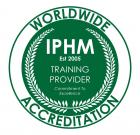Easy Steps To Prevent Indigestion
23rd Apr 2016
Indigestion is a common problem that occasionally happens to most people. It is discomfort or pain in the stomach after a meal, and feeling bloated or uncomfortably full. For some people it feels like a rock sitting in their stomach.
A few simple changes in eating habits often cures indigestion, and there is nothing better than a calm digestive system to feel right with the world.
Many people take antacid pills. Although they are widely used to relieve indigestion, they have side effects, like most medicines do. According to the British National Health Service, these can include diarrhoea, constipation, flatulence, stomach cramps, feeling sick or vomiting. They can also interfere with the body's ability to absorb other medication being taken.
Indigestion could be a symptom of other problems, such as stress, which disturbs the nervous mechanism that controls stomach and intestinal muscle contractions. Low stomach acid (hypochlorhydria), fairly common in older folk, hinders protein digestion, and allows unhealthy bacteria to flourish. It may be caused by certain spicy, fatty or fried foods. Or it may simply be due to poor eating habits.
Before worrying that it's something worse, have a go at these steps for a few days, and notice if you feel a difference.
1. Lemon juice in warm water
Ten minutes before each meal, drink a small glass of warm water with a dash of fresh lemon juice in it. The lemon juice stimulates digestive acid production in the stomach, so it helps good digestion.
2. Make time to eat, regularly.
No meal-skipping or rushed eating. This interferes with the digestive process, and can also cause irregular blood sugar levels, with energy slumps and mood swings.
3. No liquids with the meal.
Have only occasional sips of water, after swallowing. Sipping water during the meal aids digestion by helping to break down the food, so that the nutrients can be extracted.
4. Sit and relax while eating.
Digestion is governed by the body's parasympathetic nervous system, which ensures that, after the 'fight or flight' response (being on the go), the body enters 'rest and digest' mode. Eating while standing or moving interferes with messages from the brain to the stomach that it is full. So you risk over-eating as well as indigestion. Sitting helps you to rest and digest.
5. Don't do anything else while eating.
No desk-top eating, meal-time meetings, reading, phone, computer, television or other distractions. These stop you concentrating on eating and you may swallow air, which causes indigestion. Conversation can take place between mouthfuls that have been well chewed, then swallowed.
6. Take smaller mouthfuls.
You are more likely to chew smaller portions more efficiently. You will also eat less and enjoy the taste.
7. Don't hold cutlery or food while chewing.
This will help you to slow down and concentrate on your chewing, allowing the body's hunger-blocking mechanism to kick in. It takes time for the stomach to register that it no longer feels hungry. This will help with weight stability.
8. Chew with your mouth closed.
Chewing with your mouth open makes you swallow air, which aggravates indigestion.
9. Chew until the food is mashed.
Chewing creates saliva. Saliva contains digestive enzymes which break down food, particularly carbohydrates, making digestion easier on the stomach and intestines.
Chewing also stops food-borne bacteria from entering the digestive tract on undigested particles of food. Harmful bacteria in the colon can cause gas, constipation, diarrhoea, cramping and other digestive problems.
The stomach digests proteins, like meat and fish, so poorly-chewed carbohydrates ferment in the stomach, passing undigested into the small intestines and then into the bloodstream. This contributes to digestive disturbances such as gas, leaky gut, food intolerance and irritable bowel.
Even soups, juices and smoothies (fruits and vegetables are high in carbohydrates) need to be swished around the mouth, so that the saliva can work on them.
10. When you feel satisfied, stop eating.
Over-eating leads to indigestion, bloating, weight gain, physical and mental fatigue.
Following these steps will help to create a calm digestive system, food enjoyment, stress relief, relaxation and a feeling of well-being. Do have a go.
Copyright © 2016 Brenda Martin





